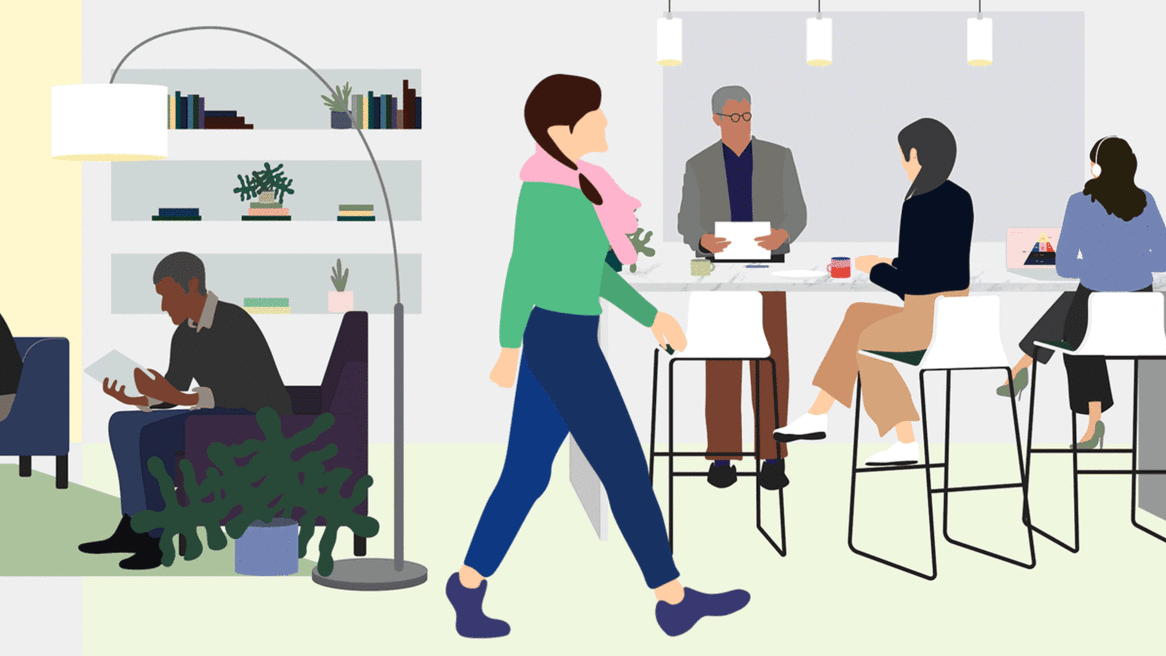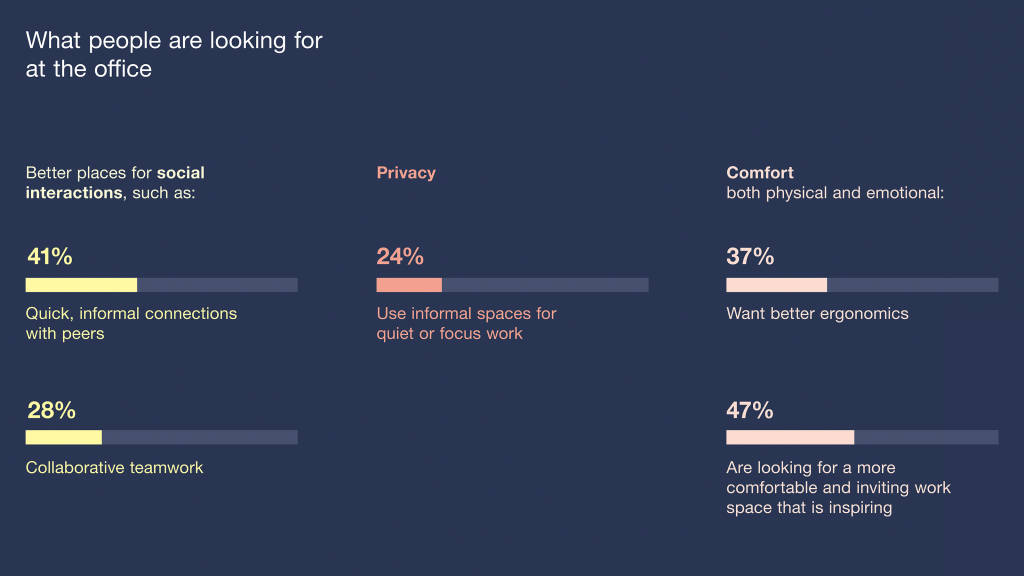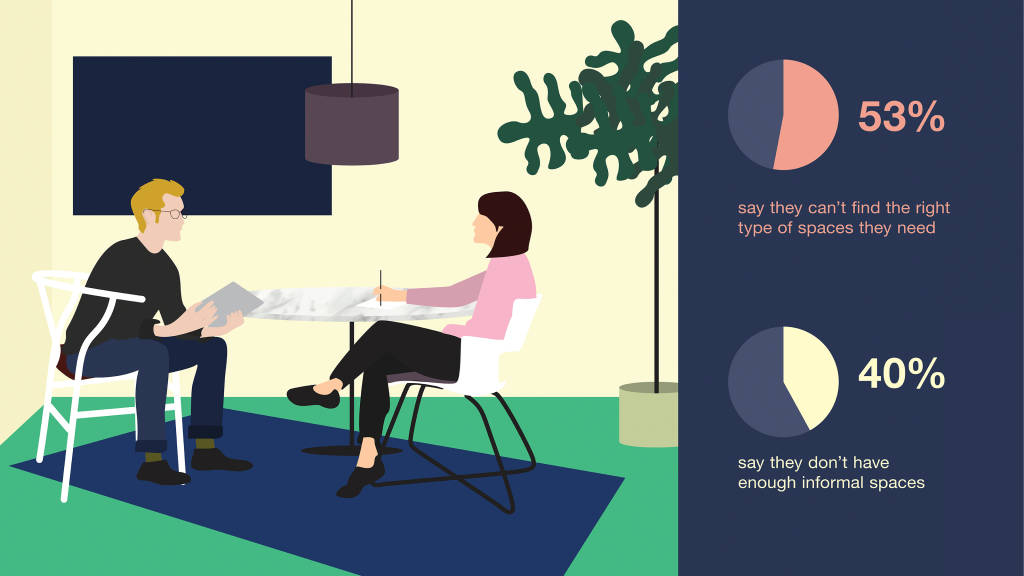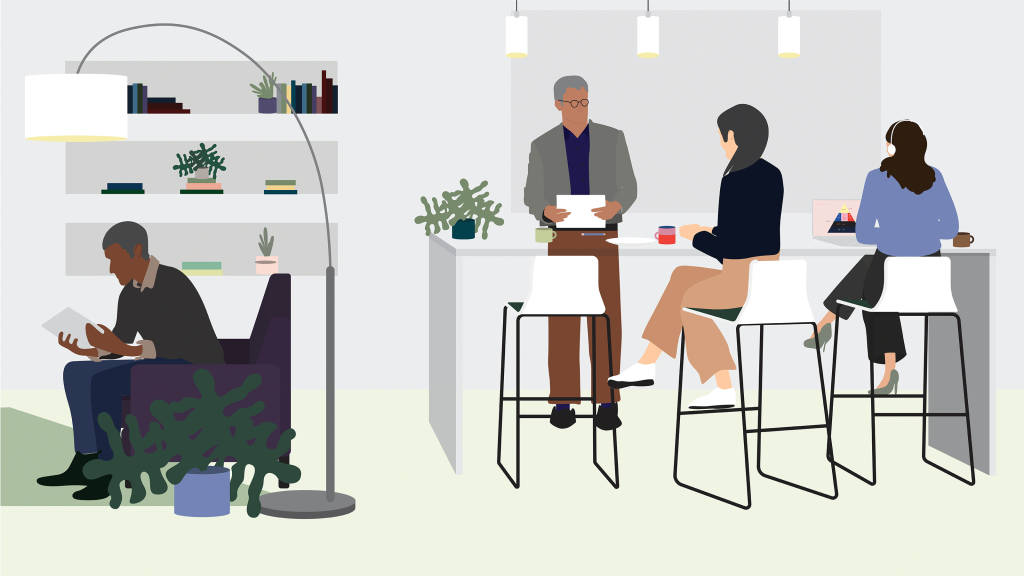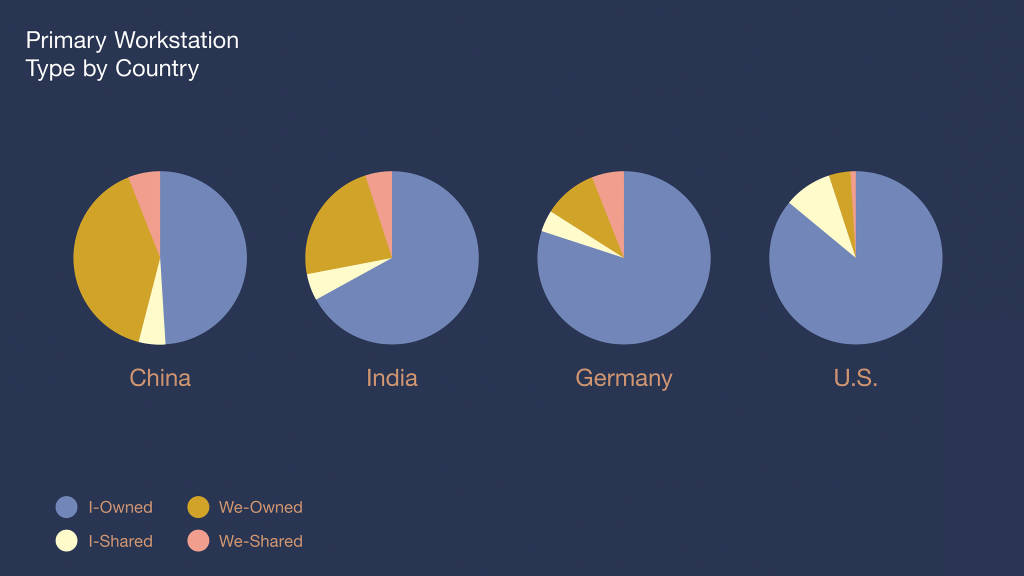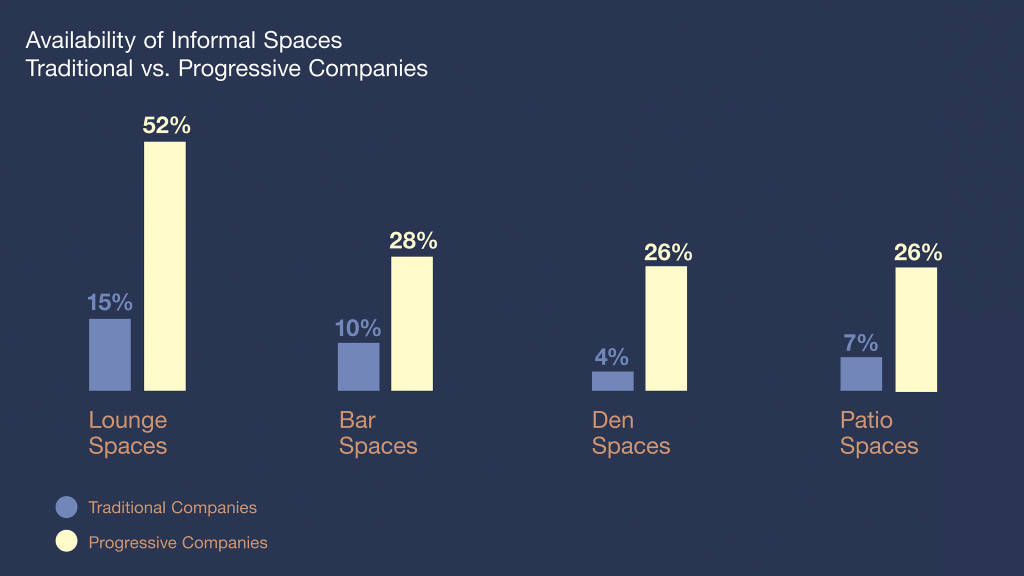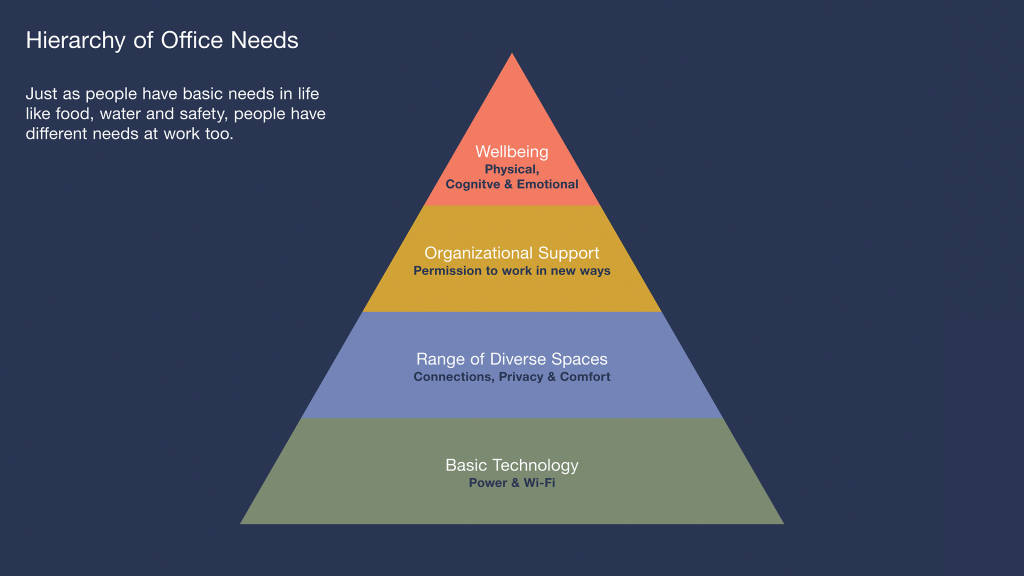What Workers Want
People know what they don’t want at work—a sea of bland, uniform spaces where ideas go to die.
In fact, a recent Steelcase study of global office workers found that although 77 percent of people have their own assigned workstation, the vast majority—87 percent—spend two to four hours every day working someplace else. We wanted to know: Why are people migrating away from their desks? What kinds of spaces are they looking for? Is it as simple as adding some sofas and a barista bar to give people the kind of workplace they want?
As it turns out, monotony is a huge motivator—just over half of people (51 percent) say they need an escape from working in the same place during their day, whether they were alone or with others. They’re also seeking deeper relationships with colleagues, and 43 percent believe informal spaces can help build more trust.
DESIRE VS. REALITY
People give lackluster scores to the ancillary spaces their companies provide today. Digging deeper we saw what’s behind the ho-hum ratings:
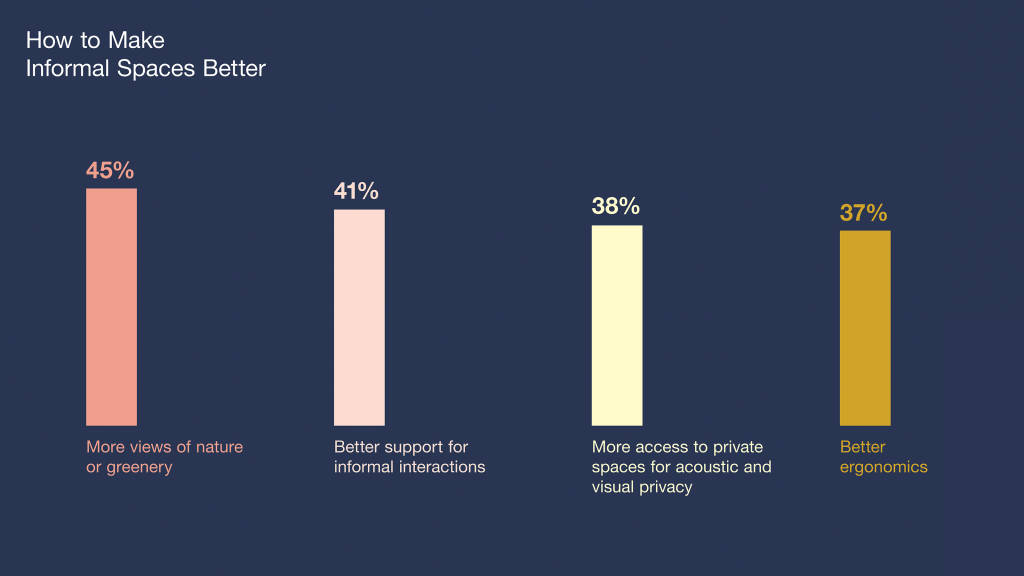
THE AGE FACTOR
Younger and older generations agree—everyone likes informal spaces and uses them regularly—but for different reasons. Millennials are more likely to use dining/bar spaces to do focus work while older generations use these spaces for collaboration and socialization.
Lounge spaces are used by millennials as a place for privacy while older generations use these spaces socially. Millennials are also more likely to use a wider range of informal spaces and to adjust their furniture, where older employees tend to pick favorite spots to use and leave their furniture settings alone.
CULTURE SHIFT
In China and India, people spend far less time at their primary workstation than in other countries. Organizations appear to be more progressive and provide more informal spaces to their employees.
India and China also offer the lowest percentage of I/Owned workstations and the highest percentage of We/Owned and We/Shared workspaces. This further promotes mobility in the workplace and people in these countries are more likely to seek out other spaces to work.
Organizations in the United States and Germany appear to be more traditional and provide considerably more I/Owned workstations; organizations in India and China are more progressive and offer more We spaces.
The more the better
It shouldn’t come as a surprise: Companies that offer more casual, inspiring spaces are perceived as being significantly more progressive than those who don’t.
Hierarchy of OFFICE NEEDS
Just as people have basic needs in life life food, water and safety, people have different needs at work too. In the office, organizations must provide people with technology, a diverse range of spaces that support different types of work and permission to use these spaces if they expect them to thrive.
According to the study, most organizations only provide people with the technology and permission to work in informal spaces. But what’s missing is the range of spaces where people want to work that support their physical, cognitive and emotional wellbeing.

